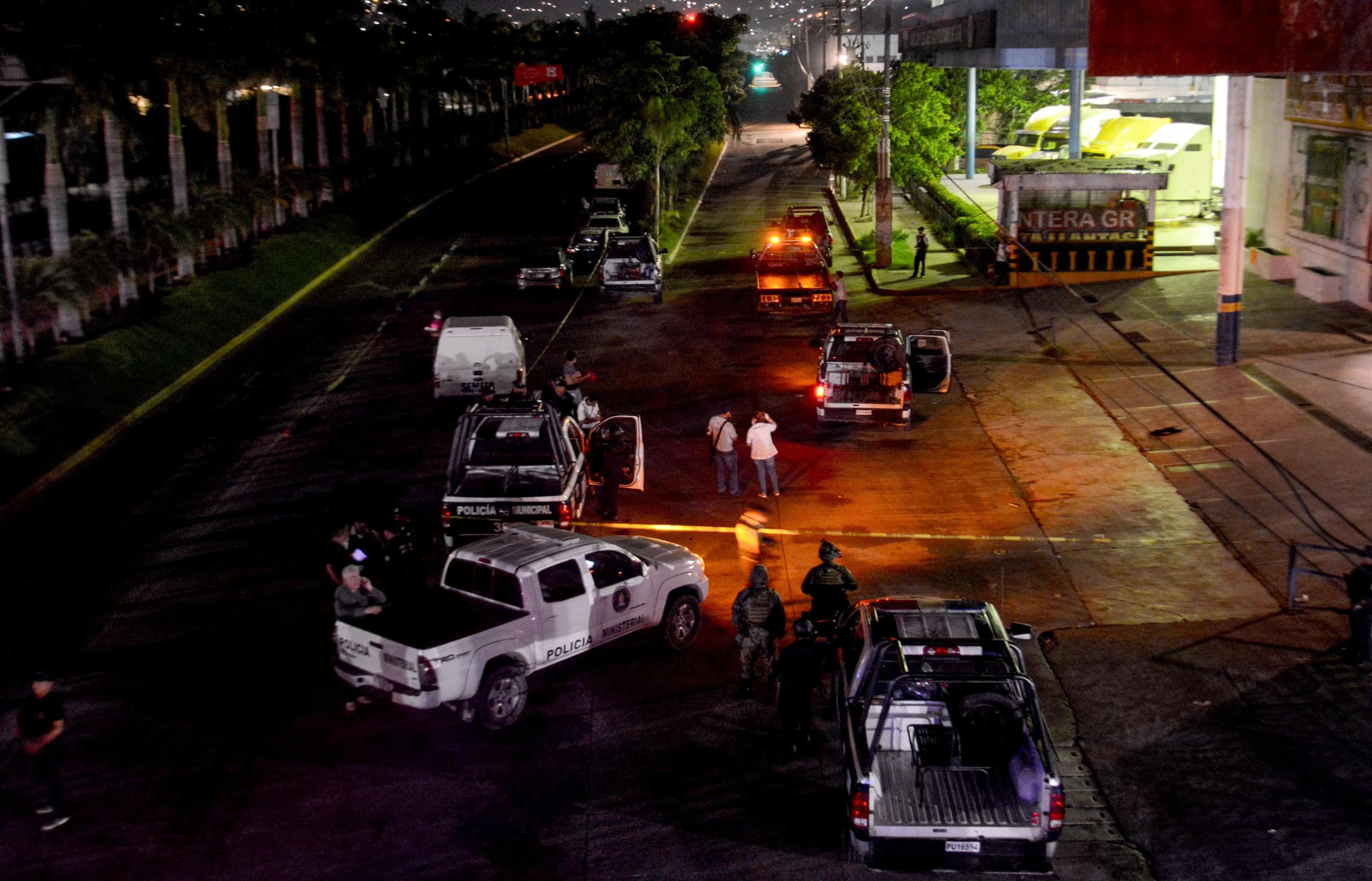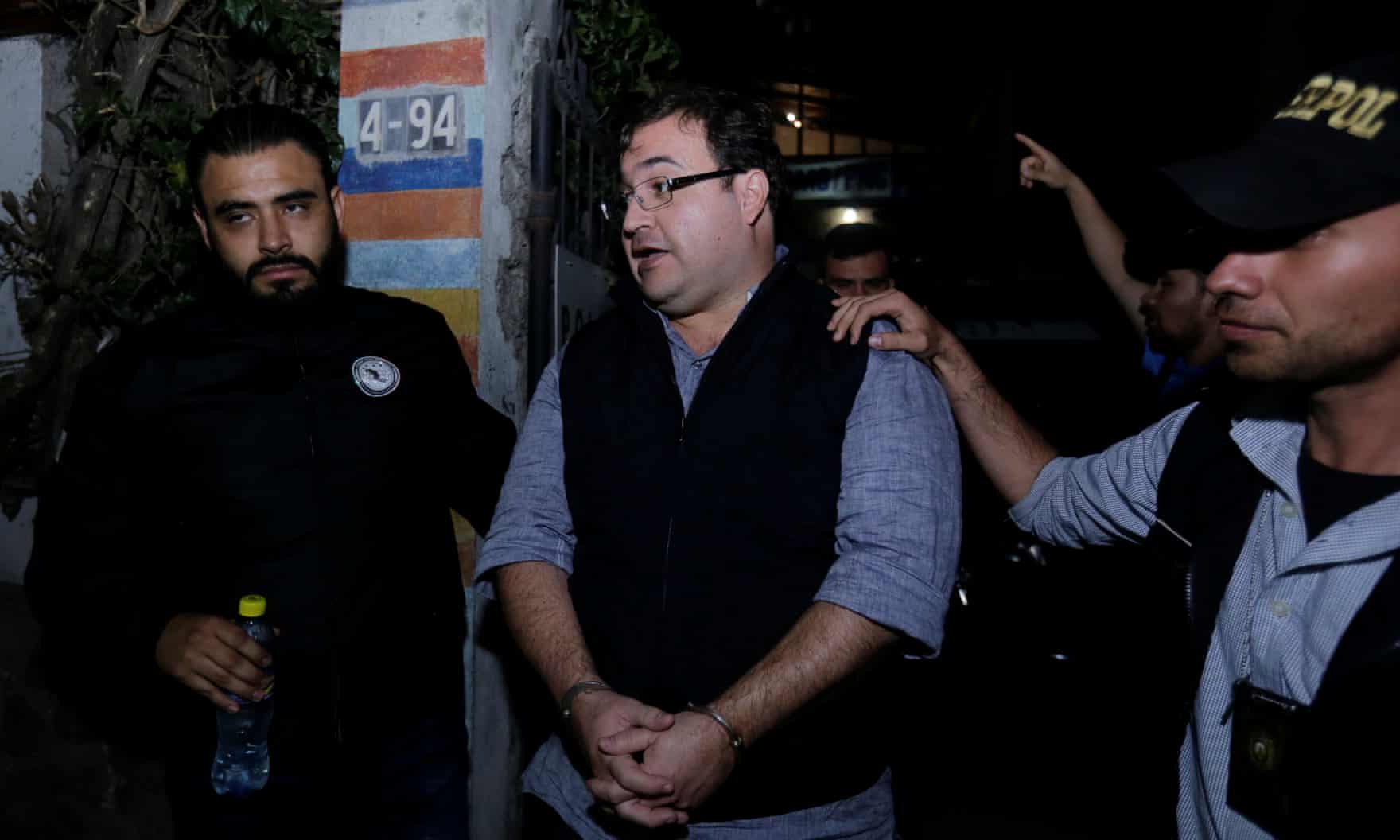
Mexico has become a major importer of spying kit but officials are accused of colluding with criminal groups – and innocent individuals are often targeted. – Cecile Schilis-Gallego and Nina Lakhani
A collaboration with 24 international media outlets across 18 countries, and coordinated by Forbidden Stories, the Cartel Project investigates the global networks of Mexican drug cartels and their political connections around the world.
Corrupt Mexican officials have helped drug cartels in the country obtain state-of-the-art spyware which can be used to hack mobile phones, according to a senior DEA official.
As many as 25 private companies – including the Israeli company NSO Group and the Italian firm Hacking Team – have sold surveillance software to Mexican federal and state police forces, but there is little or no regulation of the sector – and no way to control where the spyware ends up, said the officials.
“It’s a free-for-all,” the official told the Cartel Project, an initiative coordinated by Forbidden Stories, a global network of investigative journalists whose mission is to continue the work of reporters who are threatened, censored or killed. “The police who have the technology would just sell it to the cartels.”
Over the past decade, Mexico has become a major importer of spyware, as officials insist they need to equip themselves against the powerful organised crime groups that have helped drive the country’s murder rate to record levels.
But the surveillance kit has also been used to target individuals not accused of any wrongdoing, including the widow of a murdered journalist, activists campaigning for a sugar tax on sodas and lawyers investigating human rights abuses.
“We found extensive evidence of targeting,” said John Scott-Railton of Citizen Lab at the University of Toronto, which researches spyware. “And that targeting touched all parts of Mexico’s civil society, as well as its political culture.”
An investigation by the Cartel Project can reveal that a 10th Mexican journalist – editor of the country’s foremost investigative magazine – was targeted with the “Pegasus” spyware sold by the Israeli company NSO Group, according to technical analysis by Amnesty International.
Mexico was one of NSO’s biggest clients for much of the last decade. After an initial contract signed with the secretary of national defense, the Israeli company cemented its place in the market in 2014 by signing a $32m contract with the attorney general’s office.
But more than 20 other companies offering spyware are active in the country, according to the DEA official.
“It seems that almost every tech out there at some point has either been pitched to Mexico, demoed there or perhaps used there,” said Scott-Railton.
The UK has also recently got in on the act. Since 2018, the UK sold Mexico spyware – telecommunications-jamming equipment and interception technology – worth $300,000, which analysts say can be used in conjunction to listen to targets’ conversations, according to government data published by Campaign Against the Arms Trade.
“We are observing a series of explosions in growth of the industry, some of them driven by demand, especially as the demand evolves just from national security services down to more regional and local police services,” added Scott-Railton.
Many of those regional and state forces are accused of colluding with the crime organisations they are supposed to be confronting, so the spyware can easily pass into the hands of the mafia or corrupt politicians.
In the US trial of drug capo Joaquín “El Chapo” Guzmán Loera, one engineer testified that he bought “interception equipment that allows access to phone calls, the internet, text messages” for the Sinaloa cartel. But crime factions who do not have their own engineers can easily corrupt officials who, according to the DEA, agree to hack targets in exchange for bribes.
The nexus between state and criminal forces has fuelled a wave of targeted violence which have made Mexico the most dangerous country for journalists in the world, outside a war zone. At least 119 media workers have been killed in Mexico since 2000, according to the Committee to Protect Journalists, and the inevitable fear for reporters is that surveillance could lead to more tangible dangers.
In 2016, Jorge Carrasco, editor-in-chief of the Mexican news weekly Proceso, received a text message from an unknown number: “Hello Jorge. I am sharing this memo that Animal Politico published today. I think it’s important to reshare.”
The message came with a link. “Who is this?” Carrasco texted back. The sender never responded.
Analysis by Amnesty International revealed that the mysterious message was an attempt to gain access to Carrasco’s phone using NSO Group’s Pegasus spyware. When clicked, the link installs an invisible software that sucks all the phone’s data, including text messages. It also enables the microphone and camera to be activated remotely.
“This is part of many attempts to know what we journalists are investigating … it’s an act of intimidation,” said Carrasco, who at the time was delving into the huge cache of leaked offshore financial documents knows as the Panama Papers.
According to Amnesty, the phone number that targeted Carrasco was the same number used to send multiple text messages containing malicious links to Carmen Aristegui – one of the country’s best-known investigative journalists who was responsible for a string of embarrassing revelations about then-president Enrique Peña Nieto. The same domain name was also used in 2017 with the same software to target supporters of a soda tax.
“We have seen a narrative that uses security issues in Mexico and the violence related to organised crime as an excuse, as a selling point to spend large sums of money in acquiring technology allegedly to be used under this context,” said Luis Fernando García, director of RD3, a digital rights organisation. “Even though, as we know in Mexico, the line between organised crime and the government is nonexistent or frequently very blurry.”
According to statistics from the Mexican government, more than a third of attacks on journalists were committed by public officials.
Gérard Araud, the former French ambassador to Washington who worked as NSO Group’s external adviser on human rights issues from 2019 to 2020, admitted to the Cartel Project that he did not know “everything that was implemented or what was not”.
For journalists, the situation is particularly dangerous. In 2012, journalist Regina Martínez was murdered while investigating allegations of corruption and organised crime during the administration of two state governors, Fidel Herrera and Javier Duarte. Sixteen journalists were murdered during Duarte’s six-year term, when reporters and photographers said surveillance intensified.
Andrés Timoteo, a friend and colleague of Martínez, said that she always felt watched. “She heard noises from her phone, echoes. But we were all spied on. It was part of daily life.” Timoteo fled Mexico after Regina Martínez was murdered, fearing for his safety.
Duarte is currently serving nine years after admitting some corruption charges and admitting to working with criminal elements.
Mexico’s opaque and lucrative system of cyber-surveillance contracts is ripe for corruption, according to García, director of RD3. “Companies and intermediaries fight for becoming friends with the official that makes the decision of who to allocate the contract to.”



